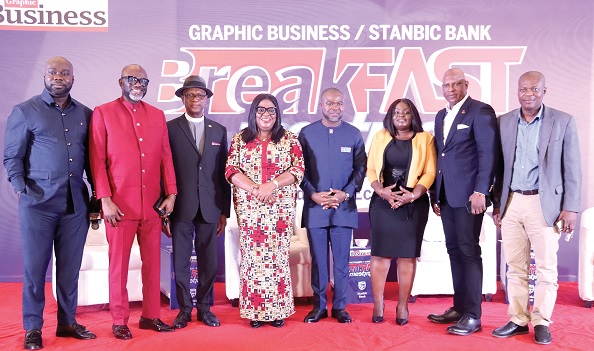
Prioritise basic needs in national budget - Petrosol CEO entreats govt
The government has been entreated to efficiently address the basic needs of the people, such as food, shelter and jobs, to make things easier for them in the current economic crisis.
The Chief Executive Officer (CEO) of oil marketing company, Petrosol, Michael Bozumbil, who made the call yesterday, said if the government provided efficient social safety nets, individuals and companies could be spared the challenge of throwing substantial resources at helping such people in economic crisis.
He challenged the government to create a parallel microeconomic framework that would serve to gauge the human development index of the citizens.
In order to make such a framework effective, Mr Bozumbil charged political appointees and policymakers to move away from their comfort zone and engage persons in the micro sector such as small and medium enterprise (SME) owners in the market to learn at first-hand their challenges and proffer tangible solutions.
“If we talk about the Ghana CARES strategy, which is being undertaken by the government, then government must have a microeconomic policy document that is targeted at the poor and vulnerable, a budget to deal with microeconomic issues before the macro issues,” Mr Bozumbil said.
Making his presentation as one of the three main speakers at the third quarter Graphic Business/Stanbic Bank Breakfast Meeting in Accra yesterday, Mr Bozumbil said the micro economy directly dealt with human beings, their wages, poverty index and living standards, and implored the government to start the revival of the economy with that branch.
“In a basic family setting, the focus is on food for the children in moments of crisis,” he said.
“Households’ income and spending are an integral part of the economy.
When government engages those at, for instance, Abossey Okai Spare Parts, those in Makola, to know how they spend, appreciate their living standards, understand how their sales and prices move, then they can advise them on how to cut down on non-essentials and prioritise what can take them out of the current economic turbulence,” he further said in an interview on the sidelines of the meeting.
The meeting, which was on the theme: “Thriving During Economic Turbulence” examined the various perspectives local businesses and citizens can apply to their businesses to overcome the current economic challenges in their various endeavours.
Review Free SHS
Mr Bozumbil called on the government to review the Free SHS under its current free-for-all nature and target specific individuals who need it.
“Government must look at the Free SHS Policy, review it to cut away unnecessary expenditure and target those who really need it,” he stated.
He asserted that while the policy was a laudable one, the state could not sustain it in its current form.
He therefore called on those who can afford to absorb some of the burden.
Private sector
The CEO affirmed that the private sector still remained the engine of growth for the country and government must support it to shoulder some of its current burdens in these challenging economic times.
“The private sector must also liaise with the government and pay the required taxes to ensure government carries out its task and honour to the citizens,” Mr Bozumbil stated.
Individual
On what individuals can do in turbulent times, a Business Advisory Expert, Professor John Gatsi, said individuals needed to review their personal budget and lifestyle such as driving personal cars to work only twice in a week, among others.
“It’s better than fighting that your income is not enough. You need to identify the market you go to buy your things because all the markets are not for all of us.
Don’t maintain the lifestyle you had before COVID-19 else you will have severe problems,” Prof. Gatsi said.
Projects
For her part, an Economist, Agyapomaa Gyeke-Dako, stressed the need for the government to resource the National Development Planning Commission (NDPC) well to implement long-term strategies that would ensure that politicians did not abandon projects.
That, she said, would bring about collective sustainable development.
